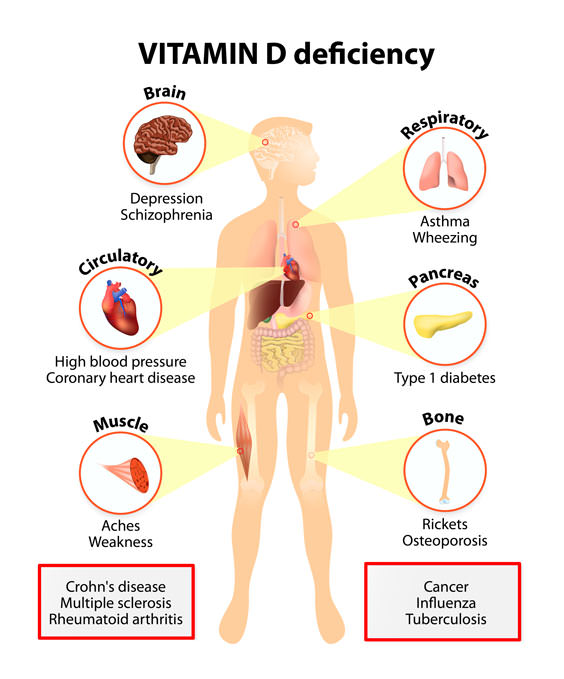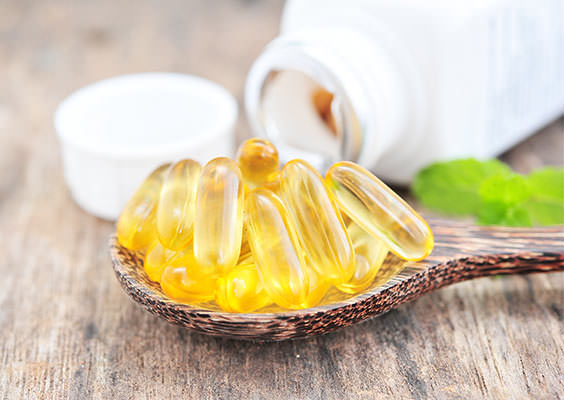The advice you’re getting from your doctor, the TV and even the Surgeon General is so wrong, it’s scary.
They’re all busy telling you to stay out of the sun.
But Swedish researchers recently discovered that nonsmokers who avoid the sun have a life expectancy similar to smokers who spend a lot of time in the sun.
Staying out of the sun is as dangerous as smoking.1

It doesn’t surprise me. I tell all my patients sunlight exposure is essential to our health because it is the best source of vitamin D… possibly the most important nutrient we know of.
Mainstream medicine still doesn’t recognize the importance of vitamin D, which is synthesized in your body when skin comes in contact with sunlight. Instead, all you hear about is the danger of exposure to UV rays and how you need to use synthetic sunscreens that are full of toxic chemicals.
Vitamin D Benefits
There’s overwhelming evidence that increased vitamin D levels actually lower the risk of cancer, diabetes, heart disease and every other chronic illness.
A four-year study conducted by researchers at Creighton University found that vitamin D and calcium supplementation can help prevent 17 types of cancer and lower your overall cancer risk by a whopping 77%.2
Another extensive study conducted on more than 27,000 patients at the Intermountain Medical Center in Salt Lake City found those wit
h the lowest vitamin D levels were 43% more likely to develop coronary artery disease than those with normal levels.3Vitamin D is also known to help lower the risk of type 1 and type 2 diabetes, and helps prevent autoimmune disorders like multiple sclerosis and rheumatoid arthritis.
And that’s not all. A recent study shows that vitamin D binds directly to your DNA4 and triggers a gene that stops inflammation.
That’s why it makes no sense to follow modern advice to avoid the sun at all costs. Of the 10 leading causes of death in the U.S., chronic inflammation contributes to at least seven of them. These include heart disease, cancer, chronic lower respiratory disease, stroke, Alzheimer’s disease, diabetes, and nephritis.5
The trick is, you need to have enough vitamin D to activate the process. And this is where modern advice is shortchanging you.
Current guidelines suggest you should have a minimum blood serum level of 20 ng/ml. But that means getting only 600 IU a day.
Vitamin D Deficiency Symptoms
And look what happens when your blood levels are that low:
- People with low vitamin D have significantly more cases of colon cancer.6
- More than half of people with osteoporosis-related fractures had low vitamin D.7
- Sixty-three percent of people with Crohn’s disease still had low vitamin D even though 40% of them were taking a supplement!8
- An incredible 96% of people who had heart attacks were vitamin D deficient.9
A recent study by the University of California, San Diego School of Medicine and Creighton University School of Medicine in Omaha, Nebraska, reveals that the typical adult needs between 4,000 and 8,000 international units (IUs) of vitamin D3 per day to prevent cancer, multiple sclerosis, and type 1 diabetes.10
Naturally Increase Your Vitamin D Levels
Here’s what I recommend you do to increase your daily intake of vitamin D and improve your overall health:
- Bask in the sunlight. You don’t have to live in South Florida like me to get enough sunshine and recharge your vitamin D. Get out and catch some rays for 10 to15 minutes at least a few times per week — if not every day. This is the best way for your body to obtain vitamin D. As little as 10 minutes in the midday sun can provide you with as much as 10,000 IUs. And you’ll feel instantly better.

- Try some cod liver oil. Next to sunlight, this is the best source of vitamin D, providing 1,360 IUs in just a single teaspoon per day. Since cod liver oil is whole-food based and easily digested, you can take it any time of day — though many people prefer a spoonful in the morning as it helps with energy regulation throughout the day.

- Eat foods rich in vitamin D. These include small fish like herring, sardines and anchovies. Organic milk from grass-fed cows is also an excellent source, as are egg yolks, cooked salmon and mackerel, tuna fish and orange juice.

- Take a good-quality vitamin D supplement. Your food probably won’t give you all the vitamin D you need. I recommend taking a supplement of vitamin D3 called cholecalciferol. It’s the same vitamin D3 your body produces. Just be sure to avoid the synthetic form of vitamin D2 in most multivitamins because it is less potent and less absorbable.
I recommend 2,000 IUs via supplement daily, preferably in the morning but never at
night. That’s because vitamin D is inversely related to melatonin, your sleep hormone, and may keep you awake.
To Your Good Health,
![]()
Al Sears, MD, CNS
1. Lindqvist PG, Epstein W, Nielsen K, Landin-Olsson M, Ingvar C, Olsson H. Avoidance of sun exposure as a risk factor for major causes of death. Journal of Internal Medicine. 16 Mar 2016; doi:10.1111/joim.12496.
2. Lappe, J.M., et al, “Vitamin D and calcium supplementation reduces cancer risk,” Am. J. Clin. Nutr. June 2007; 85(6):1586-91
3. “Vitamin D Shows Heart Benefits in Study,” NYTimes.com, 11/16/2009
4. Zhang Y, et. al. “Vitamin D Inhibits Monocyte/Macrophage Proinflammatory Cytokine Production by Targeting MAPK Phosphatase-1.”Journal of Imm, March 1, 2012; vol. 188 no. 5 2127-2135.
5. “Chronic Inflammation.” Life Extension Protocols. Retrieved March 5, 2012.
6. Jenab M, et. al. “Association between pre-diagnostic circulating vitamin D concentration and risk of colorectal cancer in European populations…” BMJ. 2010 Jan 21;340:b5500.
7. Bogoch E, Elliot-Gibson V, Wang R, Josse R.”Secondary Causes of Osteoporosis in Fracture Patients.” J Orthop Trauma. 2012 Feb 25.
8. Nic Suibhne T, Cox G, Healy M, O’Morain C, O’Sullivan M. “Vitamin D deficiency in Crohn’s disease: Prevalence, risk factors and supplement use in an outpatient setting.” J Crohns Colitis. 2012 Mar;6(2):182-8.
9. Lee J, Gadi R, Spertus J, Tang F, O’Keefe J. “Prevalence of vitamin D deficiency in patients with acute myocardial infarction.” Am J Cardiol. 2011 Jun 1;107(11):1636-8.
10. Garland CF1, French CB, Baggerly LL, Heaney RP. Vitamin D supplement doses and serum 25-hydroxyvitamin D in the range associated with cancer prevention. Anticancer Res. 2011 Feb;31(2):607-11.

